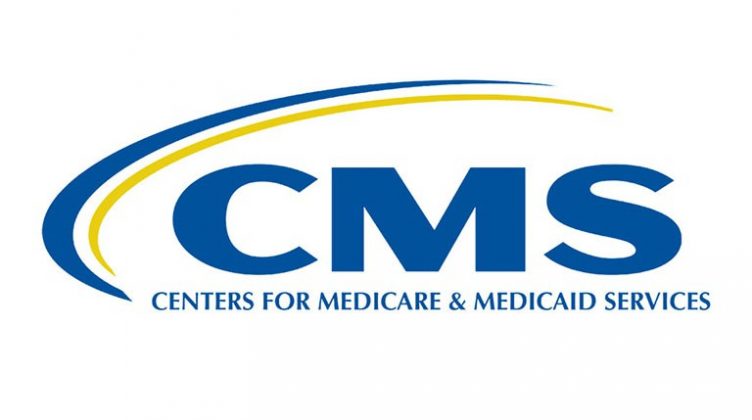Effective April 27 Changes to Medicare Discharge Appeal Forms
On January 23, 2023, the Centers for Medicare & Medicare Services (CMS) announced that the Office of Management and Budget approved updated versions of beneficiary notices.
Healthcare providers must start using the new versions of the following forms no later than April 27, 2023:
- Important Message from Medicare (CMS-10065)
- Detailed Notice of Discharge (CMS-10066)
- Medicare Outpatient Observation Notice (CMS-10611)
The updated versions, as well as general information on the notices, are available at the following links.
- Medicare Outpatient Observation Notice (MOON)
- Important Message from Medicare (IM) and Detailed Notice of Discharge (DND)
Questions on the updates can be submitted to appeals.lmi.org.
CMS issues final rule for 2024 Medicare Advantage, prescription drug plans
The Centers for Medicare & Medicaid Services April 5 released a final rule that would increase oversight of Medicare Advantage plans and better align them with Traditional Medicare, address access gaps in behavioral health services and further streamline prior authorization processes. The rule also establishes additional health plan utilization management oversight processes to include required annual reviews of MA plans’ policies and coverage denial reviews by health care professionals with relevant expertise. In addition, the rule would tighten MA marketing rules to protect beneficiaries from misleading advertisements and pressure tactics; expand requirements for MA plans to provide culturally and linguistically appropriate services; make changes to MA star ratings to address social determinants of health; and implement Inflation Reduction Act provisions to make prescription drugs more affordable for eligible low-income individuals. Notably, it appears the proposal to change the legal standard for identifying an overpayment, which was of concern to hospitals and health systems, was not codified in the final regulation. In a statement shared with the media April 5, Ashley Thompson, AHA senior vice president of public policy analysis and development, said, “The AHA commends CMS for finalizing critical policies that will help ensure beneficiaries enrolled in Medicare Advantage have access to the medically necessary health care services to which they are entitled. In addition, we appreciate the agency’s increased attention to oversight of Medicare Advantage plans. Hospitals and health systems have raised the alarm that beneficiaries enrolled in some Medicare Advantage plans are routinely experiencing inappropriate delays and denials for coverage of medically necessary care. This rule will go a long way in protecting patients and ensuring timely access to care, as well as reducing inappropriate administrative burden on an already strained health care workforce.“The final rule includes helpful provisions to ensure more consistency between Medicare Advantage and traditional Medicare by curtailing overly restrictive coverage policies that can impede access to care and add cost and burden to the health care system. We also applaud CMS’ attention to addressing access gaps in behavioral health and post-acute care services where our members commonly report some of the most significant insurance-related barriers to patient care. The AHA will continue to carefully review the final rule and urges the agency to conduct rigorous oversight and enforcement to ensure meaningful compliance.”For more details, see the CMS fact sheet on the final rule.
CMS proposes 3% payment update for SNFs, new quality measures
The Centers for Medicare & Medicaid Services today issued a proposed rule for fiscal year 2024 for the skilled nursing facility prospective payment system, which would increase aggregate Medicare spending by 3.7% or $1.2 billion compared with FY 2023.
This reflects a proposed 2.7% market basket update, a 3.6 percentage-point increase to counter the agency’s market basket error in FY 2022, and a 0.2 percentage-point productivity decrease. It also includes a proposed 2.3 percentage-point cut to offset an increase in aggregate FY 2020 Medicare payments under the new SNF PPS, known as the Patient Driven Payment Model.
For the SNF Quality Reporting Program, CMS proposes to adopt three new measures and modify an existing measure on COVID-19 vaccination among health care personnel. CMS would also remove three quality measures and begin publicly reporting of two existing measures.
For the SNF Value-based Purchasing Program, CMS proposes to adopt four new quality measures, including one on nursing staff turnover, and replace one measure with a new, similar measure. The agency also proposes the adoption of a Health Equity Adjustment that rewards SNFs that perform well who have resident populations with at least 20% with dual eligibility status. Correspondingly, CMS would also increase the payback percentage from the current 60% to 66% so that this adjustment does not come at the expense of other SNFs.
CMS will accept public comments on the proposed rule through June 5.
Inpatient psychiatric facilities rule would increase payments 2%, add quality measures
The Centers for Medicare & Medicaid Services today issued a proposed rule for the inpatient psychiatric facility prospective payment system for fiscal year 2024.
CMS proposes to increase IPF payments by a net 1.9%, equivalent to $55 million, in FY 2024. The 1.9% payment update is a reflection of a 3.0% increase based on a proposed 2021-based market-basket update of 3.2% minus a productivity adjustment of 0.2 percentage points. CMS also proposes to update the outlier threshold so that estimated outlier payments remain at 2.0% of total payments. CMS estimates this would result in a 1.0% decrease to aggregate payments due to updating the outlier threshold. The agency also solicits comments to inform revisions to the IPF PPS as required by the Consolidated Appropriations Act of 2023.
In response to increased mental health needs, CMS proposes to allow the status of psychiatric units to be changed from not excluded to excluded (and thus paid under the IPF PPS) at any time during the cost reporting period.
For the IPF Quality Reporting Program, CMS proposes to adopt four new quality measures, including one on patient experience, and modify another measure related to COVID-19 vaccination among health care personnel. The agency would remove two measures and adopt a data validation pilot as well.
For more details, see the CMS fact sheet. CMS will accept comments on this rule through June 5.




